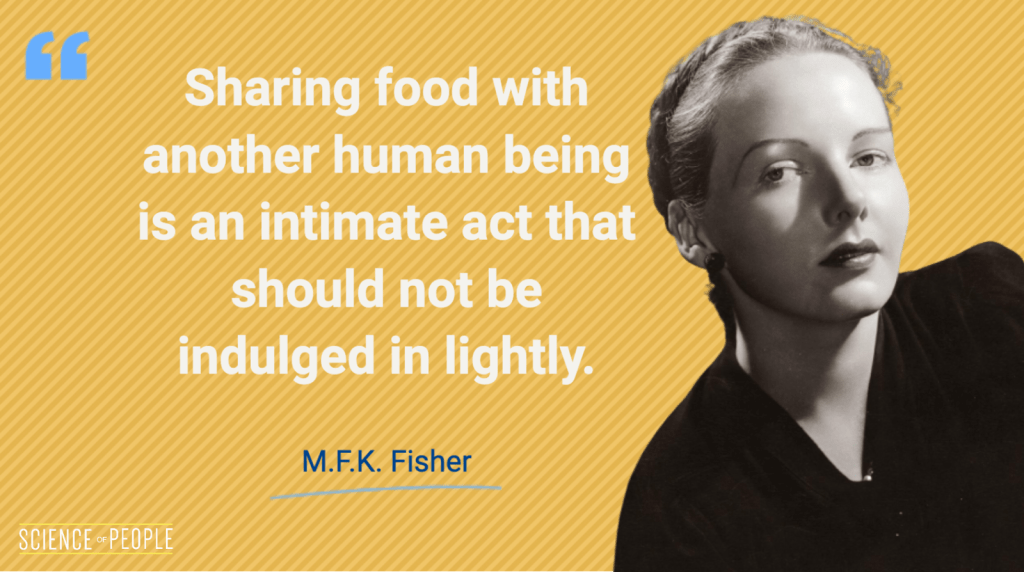Do you ever wish you could get someone to tell you the truth? You don’t need magic to get to the truth; you just need a little behavioral psychology. I want to teach you a few truth-telling tools you can use to encourage someone to tell the truth, confess, or divulge information.
Watch our video to learn how to get someone to confess:
I hope it goes without saying that I want you to use these tips for positive truth seeking. I have always believed that hard truth is better than ignorant bliss. So use these tips to bring more honesty into your life. You can also use them to test your truth-telling instincts.
In lie detection practice, we call the person we are interviewing or interrogating our “subject.”
A subject: The person whom you want to solicit truth or confessions from.
A subject might be:
- your colleague
- your kid
- your spouse
- your friend
- your real estate agent, lawyer, babysitter, car salesman, etc.
Here is how you can get someone to tell you the truth. But first, can you read body language?

Can You Read Body Language?
How good are your body language skills? Take our free body language quiz to find out!
Truth Fills Silence
The biggest mistake truth seekers make is focusing too much on which questions to ask. Questions are important, but what you don’t say is just as important as what you do say.
The key to getting someone to tell the truth is not filling the silence. Wait an extra beat after your subject finishes talking to make sure they do not have anything else to add. It is amazing how much liars will divulge in these moments.
Want to learn how to be an expert lie detector? Read more in our ultimate guide:
How to Tell if Someone is Lying
Nod Your Head
This might sound like a weird one, but it is important for getting people to open up. Head nodding is a universal sign of agreement.
Research shows that people will talk three to four times more than usual if the listener nods their head as the speaker talks. You can also do this when someone finishes speaking to get them to say more.
- When someone finishes speaking, stroke your chin (the body language for thinking).
- Nod your head three times to get them to keep talking. This also helps you extend your silence (see tip #1).
If they have anything they are holding back, this can unlock their thoughts by making you show interest and agreeableness.
Get Intimate
Remember those interrogation rooms in detective shows?
Sometimes they feel dark and isolated because isolation makes people feel defensive and vulnerable. I wouldn’t recommend taking someone to a dark room, but if you’re trying to obtain information, avoid crowds and talking face-to-face in an intimate setting.
No friends, no family members—just a nice one-on-one setting to increase that human connection.
Minimize the Significance
This is a classic technique used by TV show cops all the time. Empathize with the person you are speaking with and make the wrongdoing sound like no big deal. Oftentimes the subject will latch on to this lenient line of thinking and either confess or give you a clue as to their thinking. It sounds corny, but it actually works.
Want to know if you are good at separating lies from truth? Play “2 Truths and a Lie” with our lie-spotting quiz.
Share Something
Along with minimizing, you want to connect at a human level by sharing. And what better way to share than with food?

Sharing works because it opens people up. There’s a reason car dealerships always have free ice cream and coffee. If your colleague has a juicy bit of info and isn’t giving it up, try one of the following:
- invite them out to lunch or dinner
- share a drink
- offer them a cigarette or even candy
The more you share, the more open and trusting the other person becomes.
Play Good Cop
I truly believe that being honest and good is the best way to act in life. The same goes here for getting confessions.
I want you to be the Good Cop:
- Be reassuring. Let them know what they did is understandable. Don’t alienate.
- Minimize consequences. What will happen if they confess?
- The release. Explain that after divulging information, they will come out better—either be a better person, have a better outcome, or just feel relieved.
- Show agreeability. What made them do this? Were they pressured? Try to see from their perspective.
Build Rapport
Pop quiz! Which group of people do you think is the best at detecting lies? Is it:
- students
- police officers
- teachers
- none of the above
Click to Reveal Answer
The answer is c) teachers! In a comprehensive study of 16,537 people, teachers, social workers, Secret Service agents, and psychologists seemed to be better at detecting lies than detectives and police officers.
Ironic, right? An important part of a police officer’s job is to detect lies, but they’re no better at it than even a student is!
So what makes teachers and social workers superior lie detectors? They have the special ability to build trust and empathy. And I’m not just talking about playing good cop here—these people are able to truly connect with whomever they’re talking to on a deep, personal level.
Now, body language isn’t just the nonverbal aspect—although that’s important. True mastery of body language allows you to build rapport, connecting with others on a deeper level than normal. And that’s exactly why teachers are amazing at getting kids to confess.
Want to increase your rapport-building skills? Head on over to How to Communicate With Patients (not only for doctors!).
Center Them
When you really want to get someone to confess, try removing all barriers—desks, tables, etc.—so you have a direct one-on-one connection with them.
This also exposes their feet, so you can identify what their feet are telling you.
Also, guilty people typically like to hide behind things—a table, a pillow, etc.—or slink down in their chair. With nowhere to hide, you will see more body language cues you can read.
Ask Open-Ended Questions
Simple yes-or-no questions are easy to lie through. Conversely, the longer the answer, the more room for nonverbal and emotional leaks. Try to think of questions that require long answers. I like questions that solicit stories, like Tell me the story of last night or What’s your side of the story here.
Stick a Landmine
Landmines are little details you add when you’re rephrasing someone else’s story—details that you believe are incorrect.
Here’s what I mean: if someone tells you a story, try rephrasing it in your own words and add something different than what the person said. If they fix the mistake, great! They might be telling the truth. But if they accept it as fact, either their story is contrived or they forgot the detail as well.
Change the Telling
Another way to catch liars or get new information is to ask them to switch their mode of telling. Here’s what happens: liars rehearse their story. They have the script in their head.
So when they are asked to tell it a different way, they haven’t rehearsed it, so they can’t or you see more leaks or mistakes.
- Ask someone to draw their story.
- Ask them to tell it backwards.
- Ask them to start in the middle.
Interesting, right? 9 Other Things You Should Know About Liars
Tell a Worse Version
People can’t help but correct misinformation—especially about themselves. Tell the subject a more damning version of what you think happened and see if they try to correct you. If they do, you get a confession.
Let’s say you think your teenager took money out of your wallet. Start big by asking them if they took money and a credit card out of your wallet. Oftentimes they will correct you and admit to the smaller crime.
Invade Their Personal Space
This is an advanced-level tip. People get a bit rattled when you enter their personal space. Pull a chair closer or take a step toward them. This makes them feel more transparent and will often encourage them to dig a little deeper. This is good if you are trying to get someone to divulge secret information.
The best way to get someone to tell the truth? Tell the truth yourself. If you come from a place of truth, you are more likely to solicit it.
This is part of being influential—not only telling the truth, but knowing how to tell it. Influence comes in many different ways. Here’s how to become an influence master:
Become More Influential
Want to become an influential master? Learn these 5 laws to level up your skills.
Every Confession is Different
Congratulations!
If you follow everything in this guide, you’re way more likely than before to get someone to tell the truth.

Remember, every person is different, and sometimes one technique may not work. I found it’s best to always remain calm and good-natured every step of the way, even if it means changing your techniques up slightly… or a lot.
Check out this hilarious scene from Detective Pikachu where the main character has to win a confession by getting creative:
So how’s that for getting a confession out of someone?
If you love what you learned in this guide, check out more body language articles in our series.

Another great article, Vanessa! It is so easy to be in the defensive mode when you want someone to confess to something (talking over them, shaking your head no, etc.), but these points now make perfect sense. If you want someone to divulge information, you have to create a safe space for them. Give them space to speak, nod in agreement, sit close to them. Love the tips!
I agree with all these tips! I’ve used the triple nod before and it does signal to the person (keep going) that you are engaged in the conversation. Great article Vanessa!
Having a 18 year old brother this is awesome advice since he has a problem with compulsive lying. Thanks for the advice Vanessa!
I LOVED this information! This may come in really handy in the near future.
I’ll try to remember it next time. Great article!
These are all great tips that I believe will definitely help me in my future. I’m sure one day I’ll have kids who’ll be mischievous as ever and I’ll need these strategies to get them to tell me the truth. I know my mother would have loved to know these tips when dealing with my and my younger brother during our angsty teenage years.
Allowing the person more time by giving those moments of silence and nodding your head three times would be a great way to allow them to confess the truth in a manner that they feel less intimidated and “attacked” in would definitely lead to a better end to the interaction.
The “telling a worse version” tip is super duper useful! I’ll definitely use that when I next get a chance.
This is awesome! This reminds me of a show i watched a short time ago from Derren Brown and he actually got someone to commit murder (set up and not real) and it shows that conscious hypnotism is possible!
Love those helpful tips, thanks!
I told my mom he boyfriend cheated on her and she was adamant that i was lying
I just saw this on Twitter. It’s great. If you were to take the “tell the story backwards” approach, it must be subtle. Disguise the steps to keep the subject from becoming aware of what’s happening. Don’t begin with “Tell me what your day looked like starting at the end of the day, and work your way to the the beginning…” You might begin by saying “Let’s talk about what happened before you got the post office.” After you get that answer, go to something else then come back to what happened before the post office. “You’ve lived in Nashville 3 years or 5 years?” “5 years.” “And you own the house you live in at blah blah address? “Yes.” “When did you buy that house?” “In 2012.” “Ok… tell me about what was going on just before the post office.” Repeat that process. If you get a story that’s disjointed or disconnected, that doesn’t necessarily tell you they are lying. It just tells you that something here isn’t right and you’ve got a lot more to do with this person.
If for some reason you were to ask them to draw what happened, be sure you don’t do that before you begin the Story Reversal. If you do, your subject will have a stronger visual memory of what their story is. And it will actually help them solidify what they want to tell you happened that day.
The Comparison technique can be utilized during the questioning process. The easiest one is a situation involving missing money. Let’s say its a fairly low level embezzlement. $3,000. Around the 45 minute mark you may say “Richard, we really need to get this resolved. This has been going on for a good while now. Almost 3 years. (Keep in mind there has been no other embezzlement and the embezzling your talking to Richard about has not been going on for 3 years. Only 6 or 8 months.) Missing $20,000.00 is one thing, but over $150,000.00 is an entirely different story. This isn’t good, Richard.” At that point you’ll see 3 to 5 stress indicators and Richard will might say something like “Hey man, hold on a second, I don’t know anything about $150,000! No. That’s somebody else.” Or something similar. Obviously you’ll know what direction to go at that point.
Thanks for the great content – Scott
Wow this is very interesting! Liars beware! Seriously though I would love to try to use the telling a worse version.
I have to interrogate someone in the near future. These tips have been used before and some have not. But they all seem to be great for my interrogation. Thanks!
Wow, this really worked on my sister! Thanks for these awesome tips:)
I confronted my dad who was lying (before I read this article) and after a moment of silence I took a step towards him and it sure did rattle him! He mentioned it and said in a contemptuous tone about how I was trying to intimidate him and making it sound like I was stupid for doing so.
Hi, Im going to use these tips to get the truth out of my boyfriend